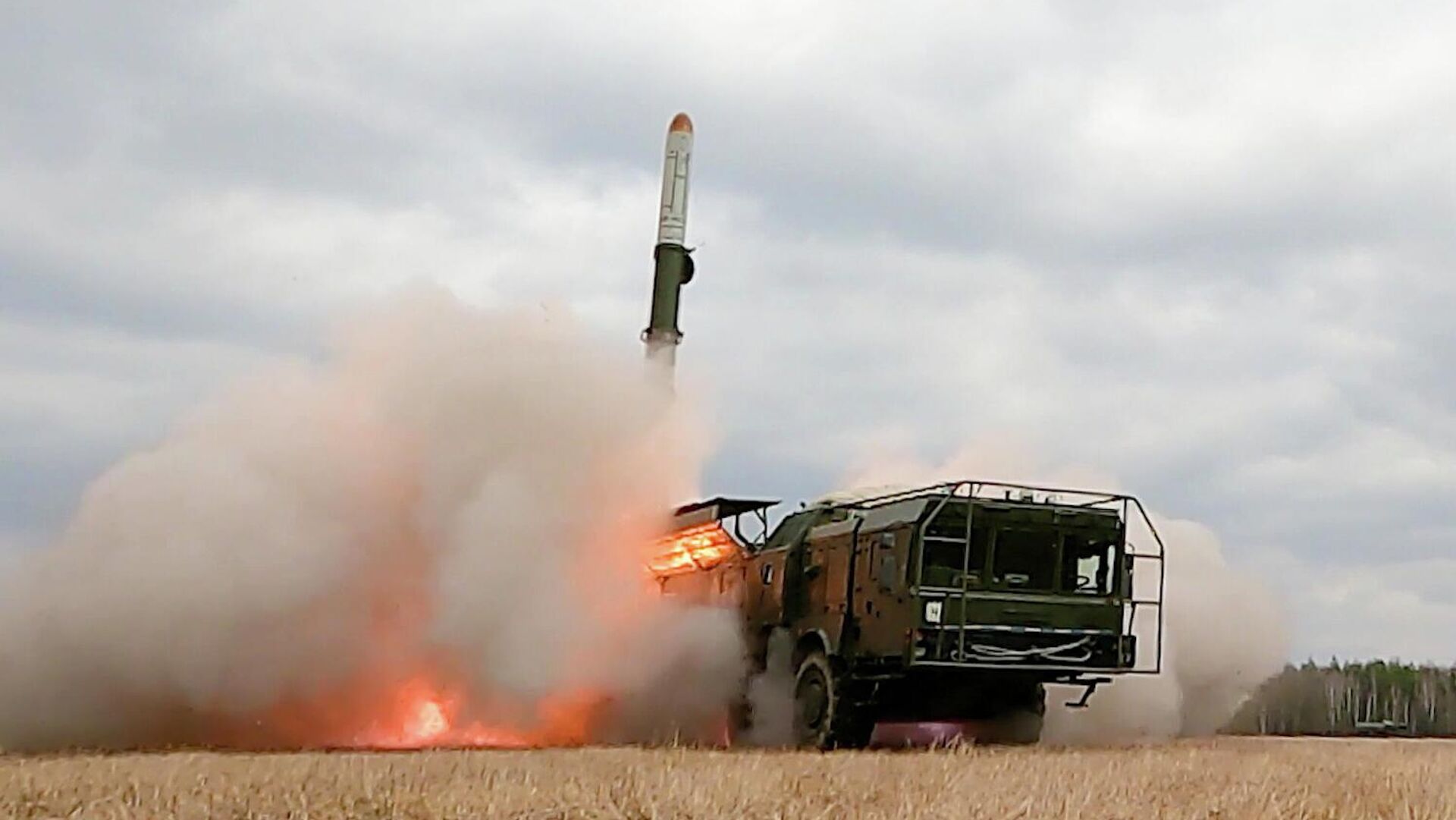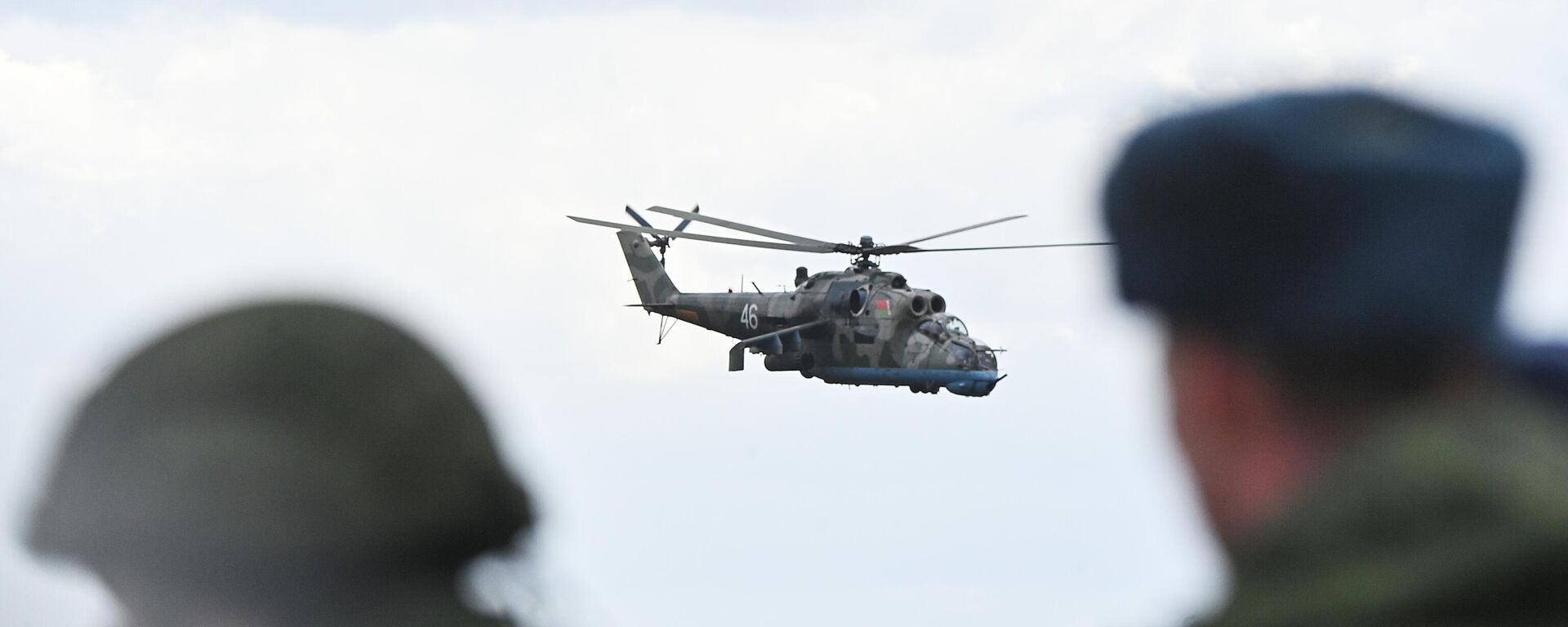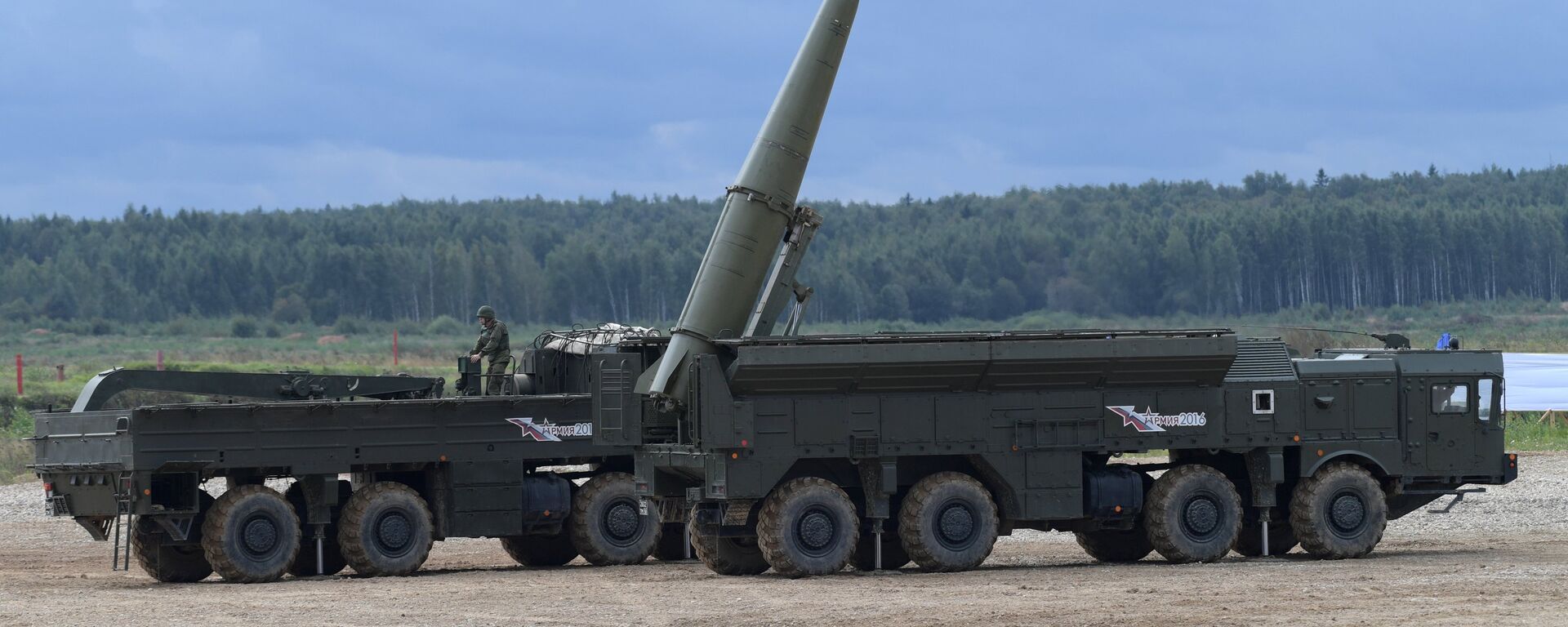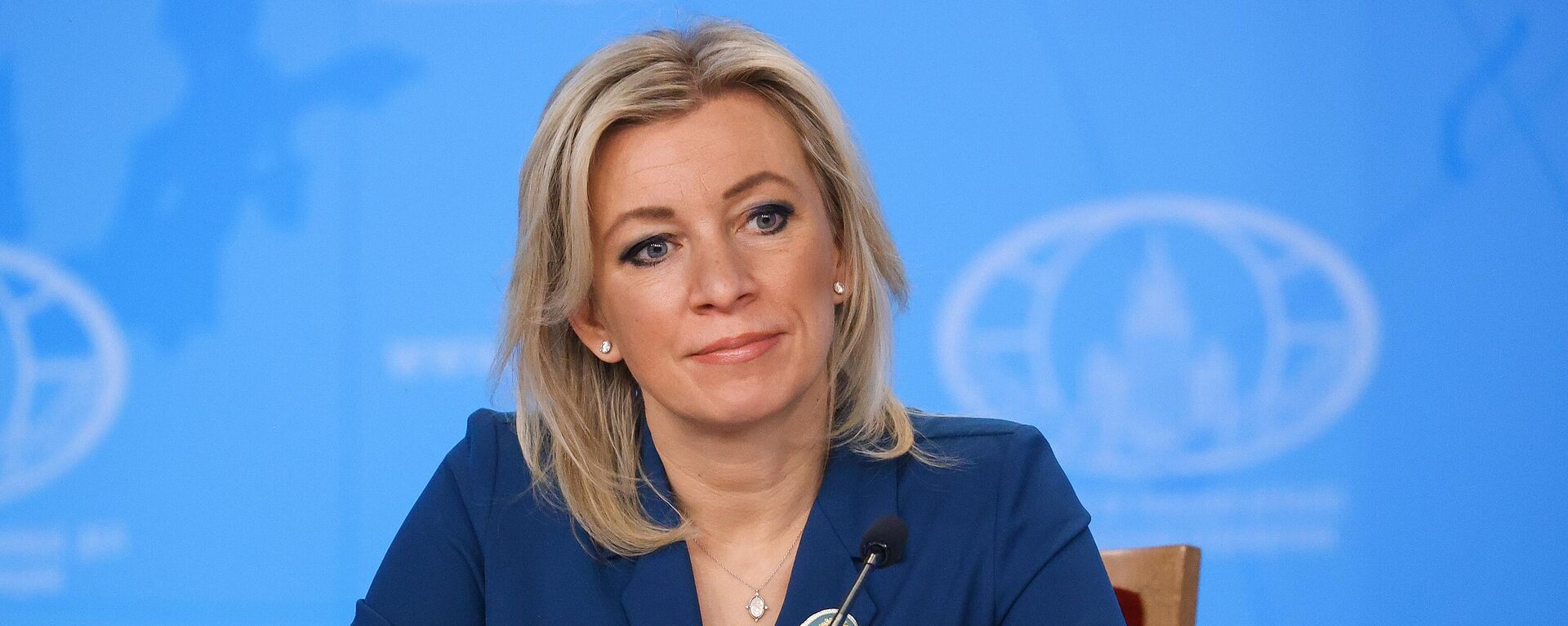https://sputnikglobe.com/20230526/why-is-russia-deploying-tactical-nuclear-weapons-in-belarus-1110607130.html
Why is Russia Deploying Tactical Nuclear Weapons in Belarus?
Why is Russia Deploying Tactical Nuclear Weapons in Belarus?
Sputnik International
The Russian Defense Ministry has announced that the control over the decision to use non-strategic nuclear weapons deployed in Belarus in sync with the Moscow-Minsk deal ¬will be carried out by Russia.
2023-05-26T15:37+0000
2023-05-26T15:37+0000
2023-05-26T15:37+0000
sputnik explains
russia
belarus
vladimir putin
alexander lukashenko
iskander ballistic missile
tactical nuclear weapons
https://cdn1.img.sputnikglobe.com/img/07e6/05/04/1095255381_0:213:1496:1056_1920x0_80_0_0_73ad729725a0601f29d8034ad48c2486.jpg
What Was Deal All About?Russian Defense Minister Sergey Shoigu and his Belarusian counterpart Viktor Khrenin inked a string of documents in Minsk earlier this week to define the procedure for maintaining Russia's non-strategic nuclear weapons at a special storage facility on the territory of Belarus.This was preceded by Russian President Vladimir Putin announcing in late March that Moscow and Minsk had agreed to station Russia's tactical nuclear weapons in Belarus, in a move that he stressed does not breach Russia's commitments on the non-proliferation of nuclear weapons. Shortly after, Russian Ambassador to Minsk Boris Gryzlov said that the tactical nuclear weapons would be stationed closer to the western borders of the Union State of Belarus and Russia.What are Tactical Nuclear Weapons?Tactical nuclear weapons (TNWs), also known as non-strategic nuclear weapons (NSNWs), include small nuclear warheads and delivery systems that are designed to be used on the battlefield or for a limited strike. TNWs comprise gravity bombs, short-range missiles, artillery shells, land mines, depth charges, and torpedoes equipped with nuclear warheads.A TNW’s yield varies from a fraction of a kiloton to approximately 50 kilotons, while a strategic nuclear weapon has a yield from 100 kilotons to over a megaton. Importantly, as of 2023, no tactical nuclear weapon has ever been used in a combat situation.Moscow has not released its TNW numbers or any other specifics related to the weaponry, but Washington argues that the Russian TNW-related figure is purportedly 10 times more than the US has.What is Behind Russia's Deployment of Tactical Nuclear Weapons in Belarus?Announcing this week’s Moscow-Minsk signing of documents on maintaining Russian NSNWs on the territory of its immediate neighbor, the Belarusian Foreign Ministry reiterated that this is a response to the aggressive policies being pursued by unfriendly countries.The ministry was echoed by Sergey Shoigu, who, referring to the deployment of Russian tactical nukes in Belarus, stressed that Moscow and Minsk were forced to make appropriate decisions on retaliatory measures in the military-nuclear sphere due an "extremely sharp escalation of threats" on both countries' western borders. This view was shared by Kremlin spokesman Dmitry Peskov, who told reporters that Moscow knows Minsk is facing a “very unfriendly and even hostile” attitude from its neighboring states, including an “intention to interfere in Belarus’ internal affairs.”In late March, Minsk made it clear that it had decided to host Russian NSNWs after years of pressure from the US and its allies aimed at changing Belarus’ political and geopolitical course.What are President Putin's Thoughts About Russian TNW Deployment on Belarusian Soil? President Vladimir Putin recalled in an interview with Russian media that his Belarusian counterpart Alexander Lukashenko had previously urged Moscow to station nuclear weapons in Belarus.Putin emphasized that by stationing NSNWs in Belarus, Russia will be doing what the US has done for decades by putting its tactical nuclear weapons in Belgium, Germany, Italy, the Netherlands, and Turkiye.According to the Russian president, Moscow has already helped Minsk upgrade 10 Belarusian aircraft so that they can carry nuclear weapons. He said Russia has also provided Belarus with Iskander short-range missile systems that can be equipped with conventional or nuclear warheads. Putin added that the construction of storage facilities for tactical nuclear weapons in Belarus will be completed by July 1.
https://sputnikglobe.com/20230526/belarusian-russian-security-councils-considering-common-security-concept---minsk-1110602360.html
https://sputnikglobe.com/20230426/watch-belarusian-military-train-in-russia-to-operate-iskander-m-missile-systems-1109846707.html
https://sputnikglobe.com/20230327/moscow-puzzled-by-states-reaction-to-deployment-of-russias-nuclear-weapons-in-belarus-1108847328.html
russia
belarus
Sputnik International
feedback@sputniknews.com
+74956456601
MIA „Rossiya Segodnya“
2023
Oleg Burunov
https://cdn1.img.sputnikglobe.com/img/07e4/09/0b/1080424846_0:0:2048:2048_100x100_80_0_0_3d7b461f8a98586fa3fe739930816aea.jpg
Oleg Burunov
https://cdn1.img.sputnikglobe.com/img/07e4/09/0b/1080424846_0:0:2048:2048_100x100_80_0_0_3d7b461f8a98586fa3fe739930816aea.jpg
News
en_EN
Sputnik International
feedback@sputniknews.com
+74956456601
MIA „Rossiya Segodnya“
Sputnik International
feedback@sputniknews.com
+74956456601
MIA „Rossiya Segodnya“
Oleg Burunov
https://cdn1.img.sputnikglobe.com/img/07e4/09/0b/1080424846_0:0:2048:2048_100x100_80_0_0_3d7b461f8a98586fa3fe739930816aea.jpg
russia's deployment of its non-strategic nuclear weapons in belarus, tactical nuclear weapons, russian special military operation in ukraine
russia's deployment of its non-strategic nuclear weapons in belarus, tactical nuclear weapons, russian special military operation in ukraine
Why is Russia Deploying Tactical Nuclear Weapons in Belarus?
Announcing this week’s signing of a deal on maintaining Russian tactical nuclear weapons on Belarusian soil, Russia and Minsk reiterated that this is a response to the aggressive policies pursued by unfriendly countries. What prompted Moscow to deploy its non-strategic nukes in Belarus? Sputnik explores.
Russian Defense Minister Sergey Shoigu and his Belarusian counterpart Viktor Khrenin inked a string of documents in Minsk earlier this week to define the procedure for maintaining Russia's non-strategic nuclear weapons at a special storage facility on the territory of Belarus.
This was preceded by
Russian President Vladimir Putin announcing in late March that Moscow and Minsk had agreed to station Russia's
tactical nuclear weapons in Belarus, in a move that he stressed does not breach Russia's commitments on the non-proliferation of nuclear weapons.
Shortly after, Russian Ambassador to Minsk Boris Gryzlov said that the tactical nuclear weapons would be stationed closer to the western borders of the Union State of Belarus and Russia.
What are Tactical Nuclear Weapons?
Tactical nuclear weapons (TNWs), also known as
non-strategic nuclear weapons (NSNWs), include small nuclear warheads and delivery systems that are designed to be used on the battlefield or for a limited strike. TNWs comprise gravity bombs,
short-range missiles, artillery shells, land mines, depth charges, and torpedoes equipped with nuclear warheads.
As compared to strategic nuclear weapons, an NSNW is less powerful and aims to devastate enemy targets in a specific area without causing widespread destruction and radioactive fallout.
A TNW’s yield varies from a fraction of a kiloton to approximately 50 kilotons, while a strategic nuclear weapon has a yield from 100 kilotons to over a megaton. Importantly, as of 2023, no tactical nuclear weapon has ever been used in a combat situation.
Moscow has not released its TNW numbers or any other specifics related to the weaponry, but Washington argues that the Russian TNW-related figure is purportedly 10 times more than the US has.
What is Behind Russia's Deployment of Tactical Nuclear Weapons in Belarus?
Announcing this week’s Moscow-Minsk signing of documents on maintaining Russian NSNWs on the territory of its immediate neighbor, the Belarusian Foreign Ministry reiterated that this is a response to the aggressive policies being pursued by unfriendly countries.
The ministry was echoed by Sergey Shoigu, who, referring to the deployment of Russian tactical nukes in Belarus, stressed that Moscow and Minsk were forced to make appropriate decisions on retaliatory measures in the military-nuclear sphere due an "extremely sharp escalation of threats" on both countries' western borders.
"I would like to note that all the activities are organized strictly in accordance with existing international obligations and do not violate the Treaty on the Non-Proliferation of Nuclear Weapons,” Shoigu said.
This view was shared by Kremlin spokesman Dmitry Peskov, who told reporters that Moscow knows Minsk is facing a “very unfriendly and even hostile” attitude from its neighboring states, including an “intention to interfere in Belarus’ internal affairs.”
He said all of this indicates that both Belarus and Russia are facing a very hostile environment, which in turn prompts the two to further strengthen their partnership, particularly pertaining to bilateral relations in the military sphere. Peskov did not specify whether Russia had started deploying TNWs in Belarus or not.
In late March, Minsk made it clear that it had decided to host Russian NSNWs after years of pressure from
the US and its allies aimed at changing Belarus’ political and geopolitical course.
"Over the last two and a half years, the Republic of Belarus has been subjected to unprecedented political, economic and information pressure from the United States, the United Kingdom and its NATO allies, as well as the member states of the European Union. In view of these circumstances, and the legitimate concerns and risks in the sphere of national security arising from them, Belarus is forced to respond by strengthening its own security and defense capabilities," the Belarusian Foreign Ministry said in a statement.
What are President Putin's Thoughts About Russian TNW Deployment on Belarusian Soil?
President Vladimir Putin recalled in an interview with Russian media that his Belarusian counterpart Alexander Lukashenko had previously urged Moscow to station nuclear weapons in Belarus.
The Russian president underlined that the immediate trigger for the deployment of TNWs in Belarus was the UK government’s decision to provide Ukraine with armor-piercing shells containing depleted uranium, something that he said was “one way or another related to nuclear technology."
Putin emphasized that by stationing NSNWs in Belarus, Russia will be doing what the US has done for decades by putting its tactical nuclear weapons in Belgium, Germany, Italy, the Netherlands, and Turkiye.
According to the Russian president, Moscow has already helped Minsk upgrade 10 Belarusian aircraft so that they can carry nuclear weapons. He said Russia has also provided Belarus with
Iskander short-range missile systems that can be equipped with conventional or nuclear warheads. Putin added that the construction of storage facilities for tactical nuclear weapons in Belarus will be completed by July 1.





